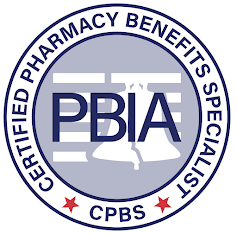Express Scripts Sues FTC, Demands Withdrawal of PBM Report and other notes from around the interweb:
- Express Scripts Sues FTC, Demands Withdrawal of PBM Report. In a lawsuit filed in federal court in Missouri, Express Scripts by Evernorth, a subsidiary of The Cigna Group (NYSE: CI), demanded that the Federal Trade Commission (“FTC” or the “Commission”) retract its July 2024 report, which is filled with false and misleading claims about the pharmacy benefit management (PBM) industry and fails to serve the interests of American consumers. Information about Express Scripts’ lawsuit to protect those it serves is available at https://www.evernorth.com/advocate. “The FTC has taken unconstitutional actions in publishing a report that ignores the evidence provided by our company and other PBMs, demonstrates clear ideological bias and advances a false and damaging narrative – a narrative that could harm the health care system by removing essential checks and balances which would result in higher drug prices for American consumers,” said Andrea Nelson, Chief Legal Officer for The Cigna Group. “We don’t take this step lightly, but as advocates working to lower drug prices for millions of Americans and the employers, labor unions, and government agencies that provide their prescription drug benefits, we cannot let the FTC’s unlawful actions and false information stand.”
- Walgreens paying $106.8 million to settle US prescription billing fraud charges. Walgreens Boots Alliance (WBA.O), agreed to pay $106.8 million to settle charges it fraudulently billed the U.S. government for prescriptions that were never dispensed, the Department of Justice said on Friday. The Justice Department said Walgreens violated the federal False Claims Act between 2009 and 2020 by submitting payment claims to Medicare, Medicaid, and other healthcare programs for prescriptions it processed but which were never picked up. This caused the pharmacy chain to receive tens of millions of dollars for prescriptions it never provided to patients, the department said. “Federal health care programs provide critical health care services to millions of Americans,” said Brian Boynton, head of the Justice Department’s civil division. “We will hold accountable those who abuse these programs by knowingly billing for goods or services they did not provide.”
- Elevance intensifies Ozempic crackdown. Anthem Blue Cross Blue Shield is requesting payments from some providers it alleges falsified patients’ medical records when prescribing Ozempic, Bloomberg reported Sept. 12. A spokesperson for Elevance Health, which owns Anthem BCBS, told Bloomberg it contacted a small number of providers about repayments for Ozempic prescribed to their patients. In some cases, the amount of repayment requested was more than $1 million. Representatives for Elevance told Bloomberg that Anthem BCBS only covers Ozempic for patients with Type 2 diabetes. The drug is not approved by the FDA for weight loss but is often prescribed off-label for that purpose. Ozempic is a prescription medication used to improve blood sugar control in adults with type 2 diabetes. It’s a once-weekly injection that also helps with weight loss by reducing appetite. Its active ingredient is semaglutide, a GLP-1 receptor agonist.
- Copay Adjustment Chess Match: What Will Payers Do Next?. The primary reason that payers created copay adjustment programs lies within the very nature of their business, namely that insuring patients means taking on the risk of patients’ lives for the pharmaceutical benefit. Additionally, the payers’ clients—employers—demand that payers and pharmacy benefit managers (PBMs) keep drug costs under control since the cost of providing healthcare to their employees remains high. Over the years, formularies, exclusions, and prior authorizations have been created to support this cost control, but using the accumulator technique, in which the patient’s annual out-of-pocket (OOP) maximum is affected by taking off the manufacturer’s contribution, is a newer approach. It all stems from the same reasoning—payers are seeking ways to control costs to benefit their bottom line, while employers are seeking ways to control the costs of providing healthcare to their employees.

